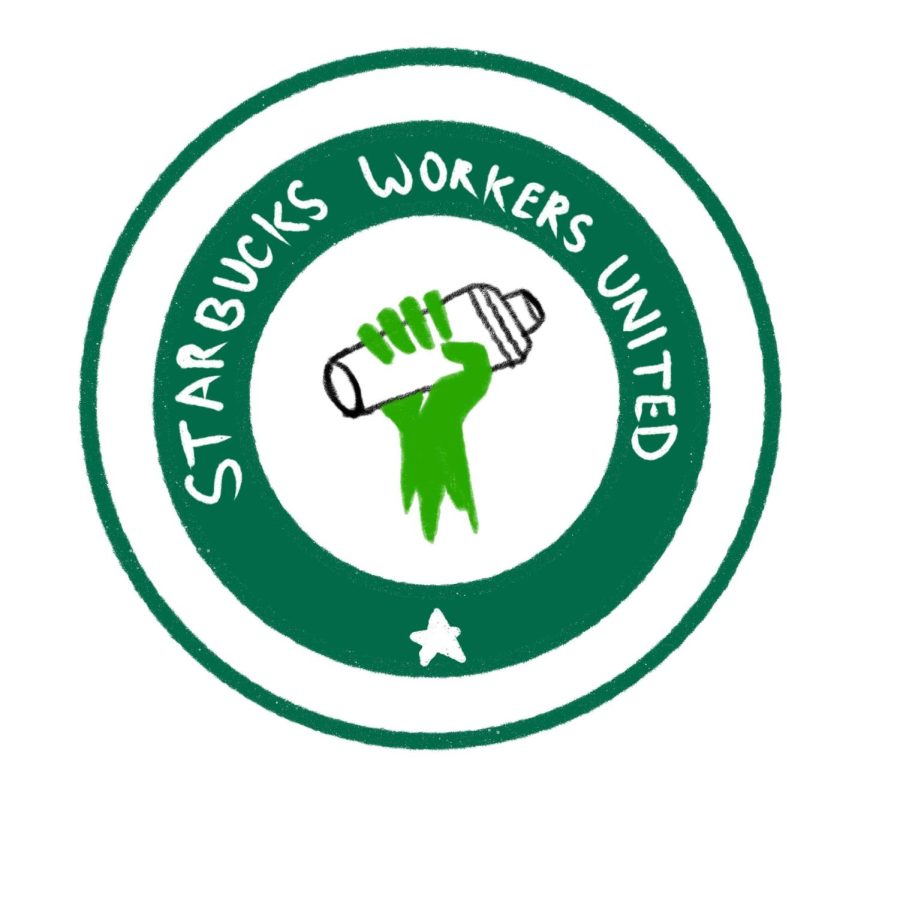Opinion | You know what tastes better than Starbucks? Unionization.
January 19, 2022
It’s January, which means we just experienced the renewal of the holiday cup, seasonal flavors and the obsession over the pumpkin cold foam at Starbucks.
People posting their drinks paired with fluffy gloves and snowy backgrounds pour in this time of year — if only unionization was as trendy as the Iced Sugar Cookie Latte.
As one of the largest food service corporations in the world, Starbucks has gained a cult following during their 50 years of operation. Since the chain began to see explosive growth in the 1990s, money has seemed to talk the loudest during conversations regarding wages and working conditions. But when a Starbucks location in New York successfully voted to unionize in December, it made history as the first of more than 8,000 U.S. locations to do so.
The Buffalo, New York, location may have succeeded in its fight, but Starbucks should prioritize unionization for all of their stores instead of fighting it — putting better working conditions and protections ahead of capitalist pursuits at the expense of its workers. But in case you needed a personal reason to be invested in this movement, unions aren’t only good for workers — they’re good for everyone.
Labor unions are a vertebrae in the American backbone that protect workers’ rights and advance their interests. Unions function as a negotiating body, communicating with employers through collective bargaining agreements where contracts then outline worker pay, hours, benefits as well as health and safety policies. And although we typically think of unions as representing teachers, nurses, law enforcement and construction workers, “there’s no reason that baristas shouldn’t get the same benefits and quality of life that other workers do,” one of the now-unionized Starbucks baristas told Vox.
Although Starbucks is one of many companies trying to quash unionization efforts, all you have to do is type “companies trying to stop unionization” in your search engine and you will be faced with an overwhelming amount of articles that detail the same situation facing millions of workers at the hands of a few large corporations — thanks Google, Walmart and Amazon. This leads me to wonder, why do most unionization efforts fail?
This may come as a surprise, but U.S. labor laws tend to favor employers over employees, resulting in a long and difficult unionization process that tends to consistently fail for workers. Tom Kochan, a professor of management at MIT, told Insider that unions lose in 90% of the cases when management opposes the organizing effort. This is in stark contrast to a growing majority — 68% as found by a Gallup poll in 2021— of Americans supporting pro-union sentiment.
Although pure capitalists hate unionization, the reality is that when workers across fields and disciplines are able to enter into unions, our economy, communities and democracy thrive. If Starbucks can offer livable wages, decent benefits and still withstand their title of largest coffee chain, the company may just serve as a national model for the benefits of unionization.
Unfortunately, the current situation doesn’t leave much room for the substantial progress millions of workers desperately need now. There are so many challenges facing workers wanting to or attempting to unionize, including intimidation and threatening, illegal firings, surveillance and working through the long, painstaking process of holding an election for a union representative. But there is hope.
American employees have the most leverage over their employers since the 1970s, as a direct result of pandemic-induced worker shortages. Although it has wreaked havoc on all aspects of our lives, COVID-19 brought the inexcusable conditions workers face to light, birthing The Great Resignation. Many people seriously reconsidered their professional lives, and left jobs that did not suit their best interests. Yet this revolutionary leverage will only last as long as the worker shortages, so if we want permanent change, we must look to our public support and political intervention.
Lawmakers have the ability to pass legislation that positively affects the American workforce, like the Protecting the Right to Organize (PRO) Act. This bill has been passed in the House and now awaits the Senate. If passed, the PRO Act can help balance bargaining power and prevent state laws that undermine unions, implement stricter penalties for employers who violate workers’ rights to organize and more.
Although there is such a long way to go in the fight against big businesses and capitalism exploiting workers, we must have solidarity within the working class if we are to see any meaningful change in the next decade or so. I know your iced coffees and hot chai tea lattes taste good, but the wellbeing of the people making and serving you those drinks should be as important — or more than — getting your morning drinks.
Grace DeLallo writes about social, environmental and political issues. Write to her at [email protected].









